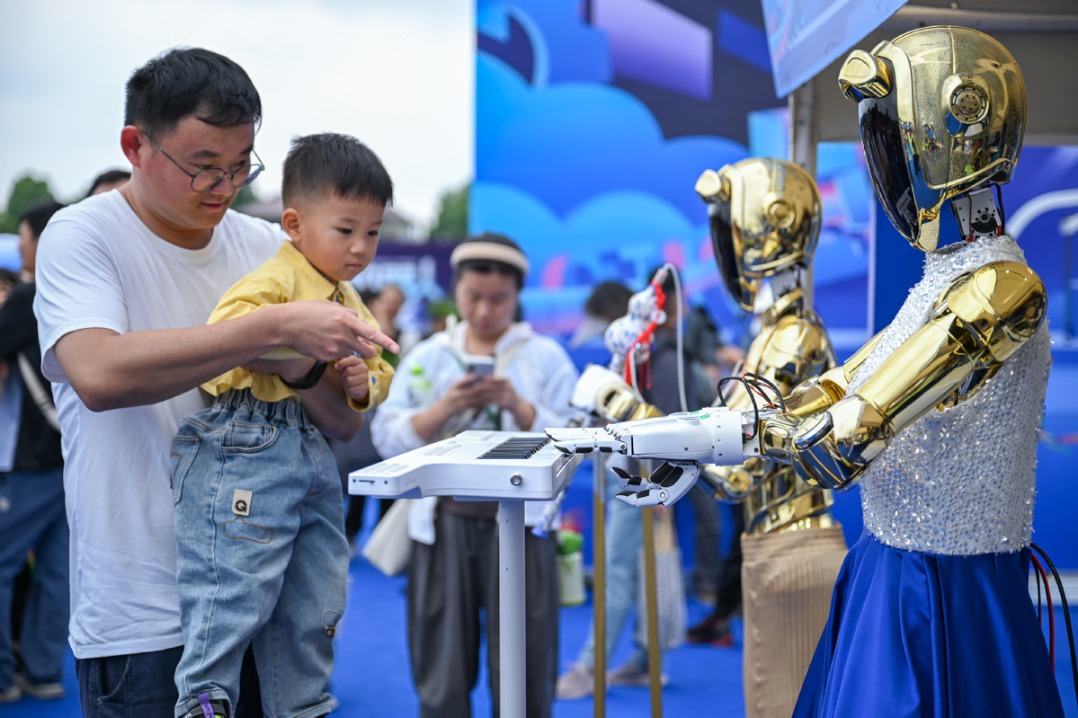Critical thinking key to AI education, experts say

As intelligent digital transformation has dramatically reshaped higher education globally, universities must strengthen students' competencies in critical thinking, creativity and ethical judgment to harness technological opportunities while addressing the risks, university presidents, professors and scholars said at a forum on Sunday.
They made the remarks at the Global University Presidents Forum held at Southwestern University of Finance and Economics in Chengdu, Sichuan province.
The forum, part of the university's 100th anniversary celebrations, attracted presidents of over 100 universities from home and abroad. More than 30 experts delivered speeches on topics including intelligent digital transformation, innovation in global higher education and talent cultivation.
Philip H. Dybvig, a professor at Washington University in St. Louis and 2022 Nobel Laureate in Economic Sciences, said reacting to AI is a challenge for universities at the moment, and it is a good example why students need to acquire both knowledge and critical thinking.
Dybvig said, "Large language models such as ChatGPT and DeepSeek make a lot of tasks easier. However, to use LLMs most effectively, it will be essential to have knowledge of programming in general and knowledge of how they work in particular."
He emphasized that it will also be essential to use critical thinking to anticipate, identify and correct problems. "LLMs lack a moral filter and this must be provided by our students," he added.
Mary Gorman, vice-president for enrollment management and strategic academic initiatives at Baruch College, City University of New York, said that universities must prepare their students for a world that is not only rapidly changing but also increasingly reliant on AI-driven technologies.
"To truly prepare our students for the digital era, we must weave AI into the fabric of our academic programs," Gorman said, adding that the integration of AI into higher education must be guided by a strong ethical foundation.
"We must teach students to critically evaluate when and how to use AI, and, crucially, when not to use it," she said.
To prepare students for workplace expectations, Gorman suggested universities adopt a phased approach to AI integration.
"Early in their academic journey, students should focus on foundational skills — critical thinking, quantitative reasoning and ethical analysis," she said. "Once these competencies are solidified, we can introduce AI as a tool for problem-solving and innovation."
Li Yongqiang, president of Southwestern University of Finance and Economics, emphasized that universities must adapt to the rapid evolution of intelligent science and technology by optimizing academic discipline structures.
"We should place greater emphasis on cultivating AI literacy, deep learning capabilities, and future-oriented adaptability and creativity in students," Li said, adding that universities should accelerate digital infrastructure development centered on data, computing power, disciplinary AI models and intelligent services.
Universities must also be ready for the impact of intelligent digital transformation in fields including knowledge innovation, social interactions and institutional governance, he said.
- China sees 2.7% increase in cross-border trips during Dragon Boat Festival holiday
- World robot carnival kicks off in Wuhan
- Greater Bay Area Aircraft unveiled to promote Hong Kong's role as 'super connector'
- Ancient Chinese martial arts find new home in Benin
- Researchers help protect Cambodian dolphins
- Pangolin protection takes pride of place





































